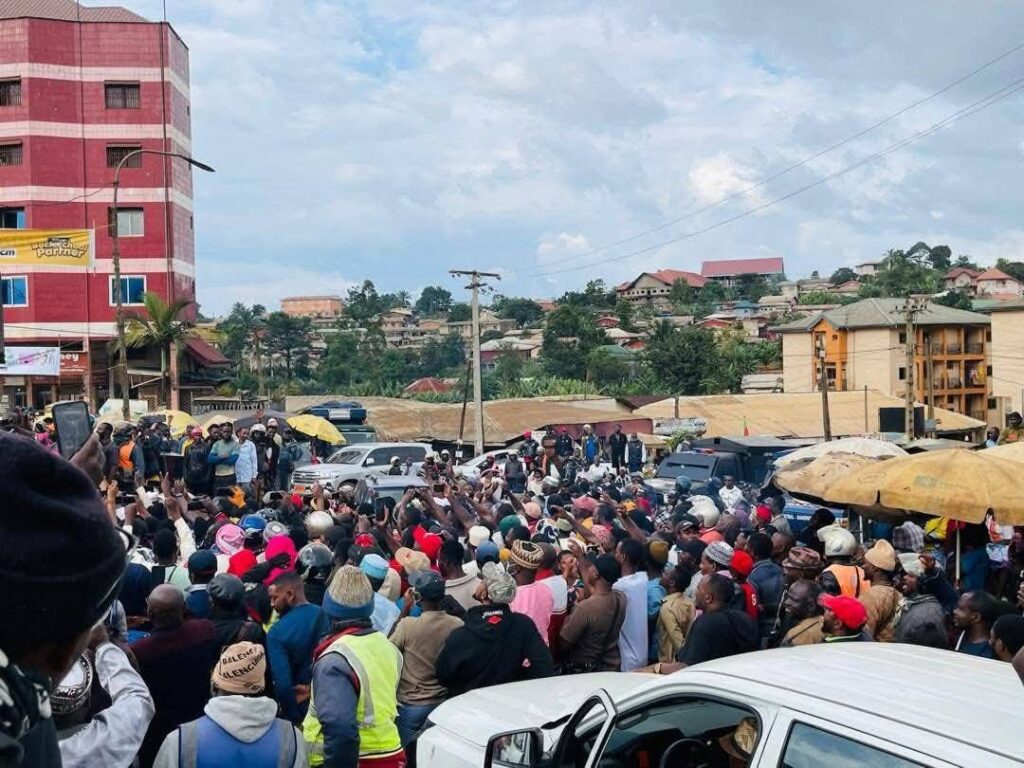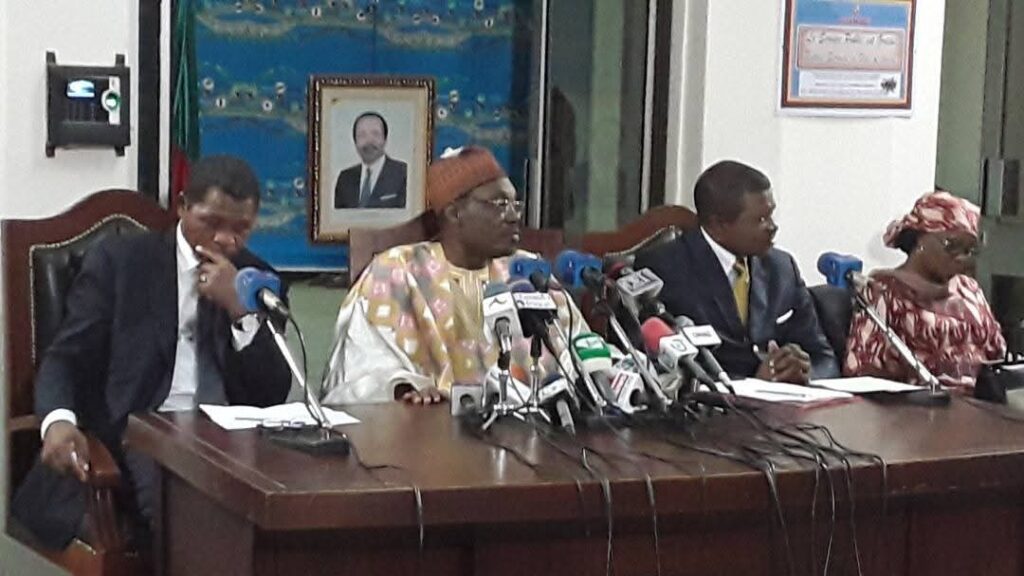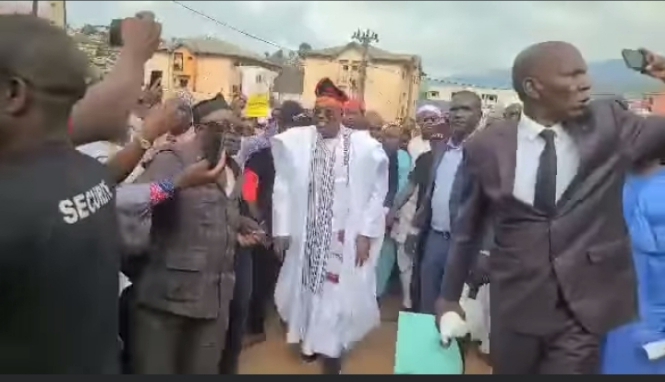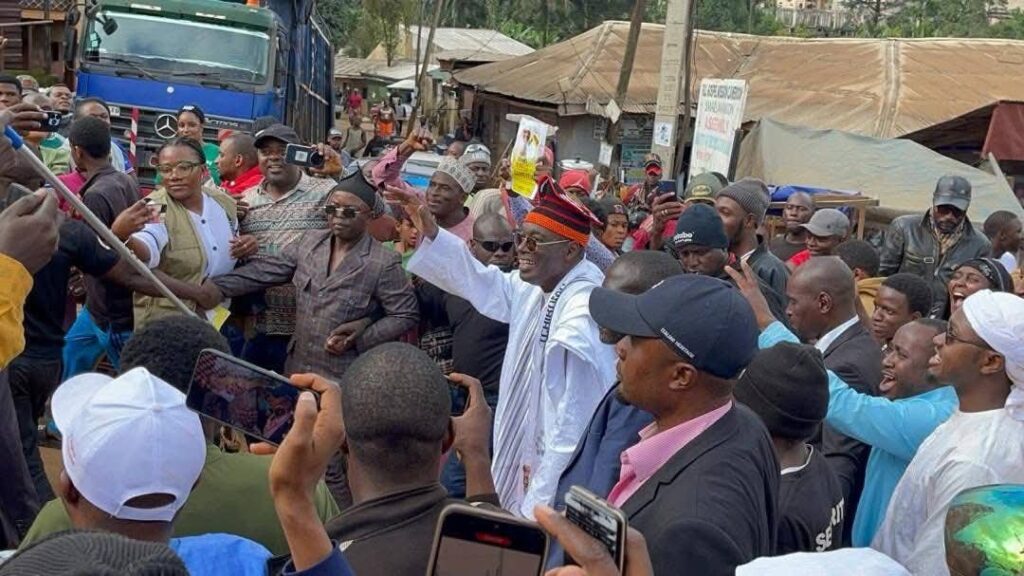By Betrand Ntumnyuy…….
Former Minister of Communication and current presidential candidate for Front for the National Salvation of Cameroon (FSNC) Political Party, Issa Tchiroma Bakary, has publicly apologized to Cameroon’s Anglophone community, admitting that his past defense of government actions during the crisis in the North-West and South-West regions caused pain and mistrust.

Speaking in Bamenda, on Saturday October 4, 2025, Tchiroma acknowledged that while serving as government spokesman, he repeatedly downplayed or denied the existence of an “Anglophone problem” and defended military operations that rights groups say were marked by abuses.
“In my capacity as Minister, I did something which distorted, which hurt your mind. Once again I want you to please forgive me because I apologize,” he said, urging Cameroonians to see his change of heart as sincere. “The Lord Himself we offend every day, but when we pray He forgives us. Why don’t you forgive me? I was wrong at a given time. I didn’t do it purposefully. It was compulsory for me.”

Tchiroma admitted that the grievances raised by English-speaking Cameroonians—particularly about the respect of the English language in official documents, education, and justice—were valid. “I was wrong in my assessment of the situation,” he said.
The apology comes as Tchiroma campaigns for the October 12 presidential election. He has promised a new approach to governance, highlighting decentralization, electoral reforms, and transparency in state institutions. In a surprising shift, he has even suggested opening debate on the country’s form of state, signaling flexibility toward federalism.
For many Anglophones, the statement is long overdue. Civil society leaders have cautiously welcomed the apology but stress that it must be followed by concrete reforms to education, governance, and justice in the troubled regions. “Recognition is important, but what we need is action,” one Douala-based activist told our reporter.

Tchiroma, who once stood as the face of the government’s communication machine during the peak of the Anglophone crisis, now describes the conflict as “not only about security, but political, historical and identity-based.”
Political analysts see his apology as both a personal reckoning and a campaign strategy aimed at broadening his appeal ahead of the polls. “This shift may win him some sympathy votes in Anglophone regions, but the real test will be whether he convinces people that he has moved beyond rhetoric,” noted a Yaoundé-based observer.
In his manifesto, dubbed the “Manifeste de Transition”, Tchiroma pledges institutional reforms, audits of public finances, and the reorganization of governance structures to ensure inclusiveness and prosperity.
Yet questions remain: Will voters trust a politician who once dismissed their grievances? And can his promise of prosperity resonate with communities scarred by nearly a decade of conflict?
As Cameroon heads into a decisive election season, Issa Tchiroma’s apology may be remembered as one of the boldest moves of the campaign—or as too little, too late.

